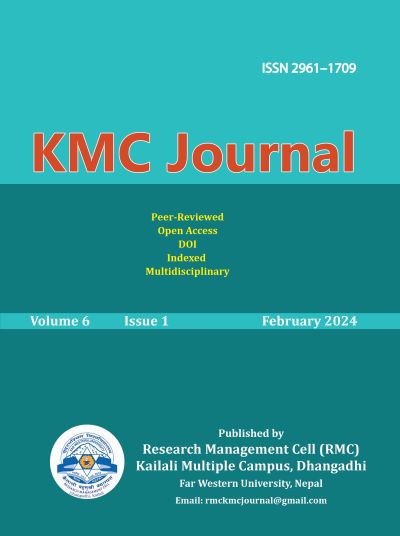Utopia Turns into Dystopia: Orwell’s Critic of Stalinist Marxist Innovativeness in Animal Farm
DOI:
https://doi.org/10.3126/kmcj.v6i1.62335Keywords:
Marxism, modernism, proletariats, revolution, socialism, Soviet-unionAbstract
This paper aims to examine modernity in Marxism as an allegory of the animals' revolution in George Orwell's Animal Farm. The major concern of this paper is to explore the modernity and its impact of utopian Marxist conception of state considering essential characteristics of political movements and the possible relationship existed between them. One is immediately puzzled by the fact that modernist literature, art, and political theory seem to have little or nothing to do with Marxism, and are, in fact, reactionary to Marxism. Modernity in Marxism is change in the life of the people belonging to lower class or proletariats. The research tool used for research is Marxism and modernity, with reference to Robert Bocock, Abram L. Harris, and Henri Lefebvre. The research methodology used for analysis is textual analysis. The major finding is the concept of Utopia where there is everybody happy and prosperous; that is the main idea of this concept from Marxism. This notion of modernism comes into existence from different political movements in global context. The historically changing process is the base for the modernity in the society that shows the abuse of power practised by Stalin in Russia in the name of Marxism.
Downloads
Downloads
Published
How to Cite
Issue
Section
License

This work is licensed under a Creative Commons Attribution-NonCommercial 4.0 International License.
This license allows reusers to distribute, remix, adapt, and build upon the material in any medium or format for noncommercial purposes only, and only so long as attribution is given to the creator.




